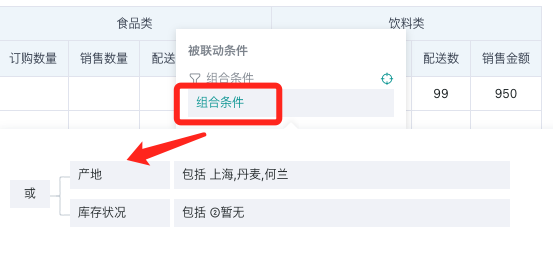Combined Condition Filter
1. Overview
1.1. Feature Introduction
When editing combined condition filters, it supports pre-configuring filter fields that consumers can customize; when users use combined condition filters, they can achieve free and complex filtering effects by freely setting filter fields, conditions, and "AND/OR" relationships between conditions.
1.2. Application Scenarios
When analysts create dashboards, some analysis content cannot predict all the filter conditions that all users need to use. Then, through "Combined Condition" filters, data analysts can pre-configure filter fields for consumers, allowing consumers to customize filter conditions and relationships between conditions during queries to meet different filtering scenarios.
2. Operation Steps
2.1. Create Selection Filter
On the page, there are two entry points to create a selection filter: creating a new filter in the filter bar, and creating a new card - selecting the card type as filter.
- Filter bar - New filter:
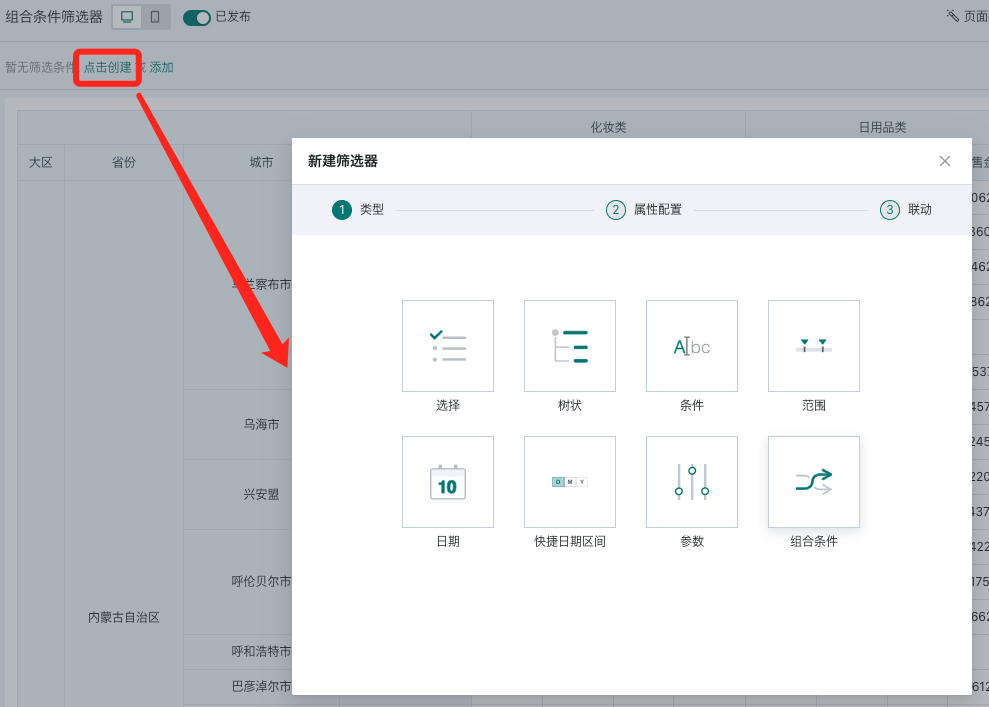
- Page - New card - Select new filter:
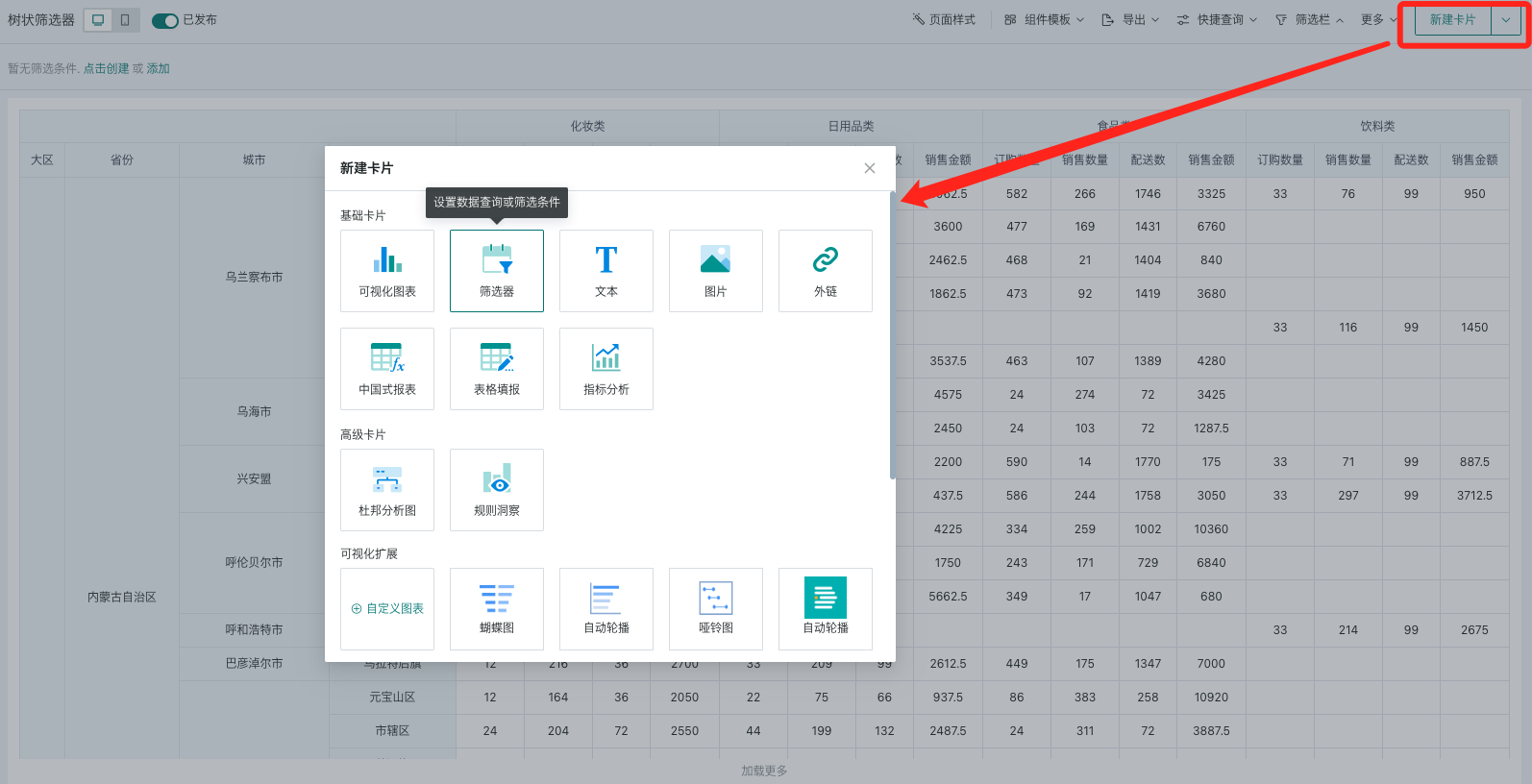
Select the type as "Combined Condition" to enter the combined condition filter editing popup.
2.2. Filter Attribute Configuration
When setting up a condition filter, first select the source dataset, then select the field that needs to be filtered by consumers.
- Support setting the filter's operator and default value.
Operation | Description |
Select Dataset | You can quickly select the current page's dataset or search for a new dataset |
Select Fields | You can select all fields of the selected dataset; the selected fields can be selected when using the combined condition filter |
Name | Defaults to empty, can be modified |
Default Conditions | Support selecting any field for filtering: the selectable field range is the linkage fields that have been set Field type is "Text": Filter method can be "Range, Selection (default), Condition" Field type is "Numeric, Date": Filter method can be "Range (default), Selection" |
Support customizing AND/OR relationships between conditions, up to 5 levels of conditions can be added | |
Support setting default values, can be empty, but if a field is selected, specific filter content needs to be filled |
\
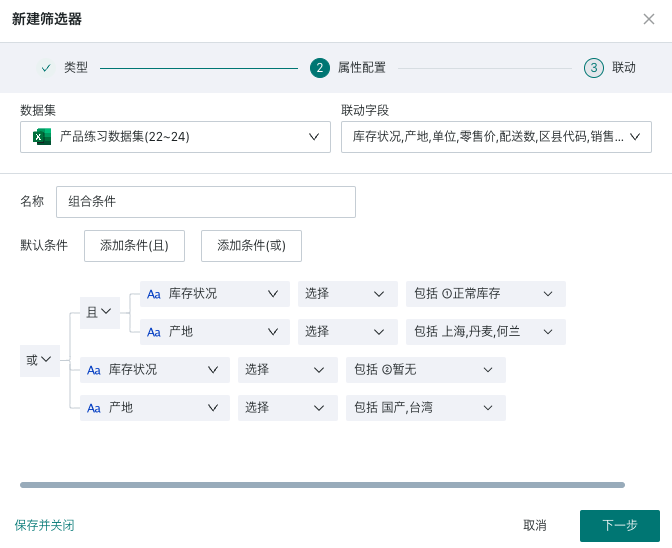
If you need to edit the filter's attributes again, you need to find the "Edit" function in the filter card's toolbar to re-enter the filter attribute configuration popup.
2.3. Set Linkage Target Card
When linking, you need to select the target card and the corresponding filter field. All selected fields need to set linkage; after the linkage fields are set, changes in the filter will link and change the data presented by the associated card.
-
Auto-link card: After the filter enables auto-link, it will automatically link visualization cards with the same field name; auto-linked cards can be manually unlinked;
-
Apply to cards with the same dataset: Click to apply to cards with the same dataset, and it will automatically link other cards under the same dataset with the corresponding field. Cards applied to the same dataset can be manually unlinked.
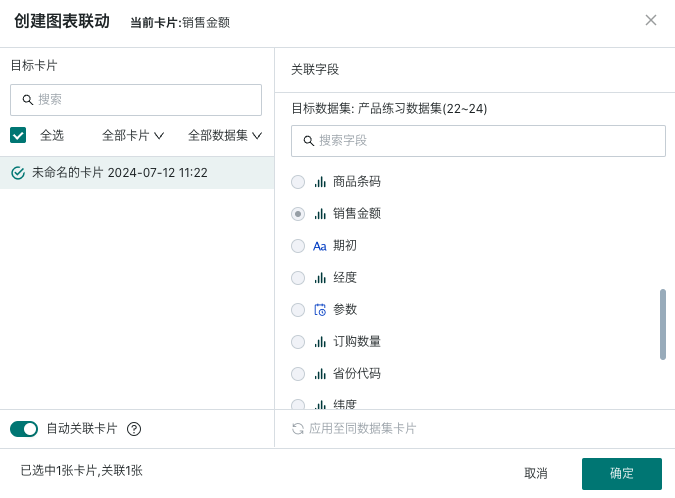
If you need to edit the filter's linkage relationship again, you need to find the "Linkage" function in the filter card's toolbar to re-enter the filter linkage configuration popup.
2.4. Style Settings
Combined condition filters support modifying whether to display name and background color through style settings:
-
Whether to display name: Only supported in standard style, fixed display name in default style;
-
Background color: Can be modified in both styles.
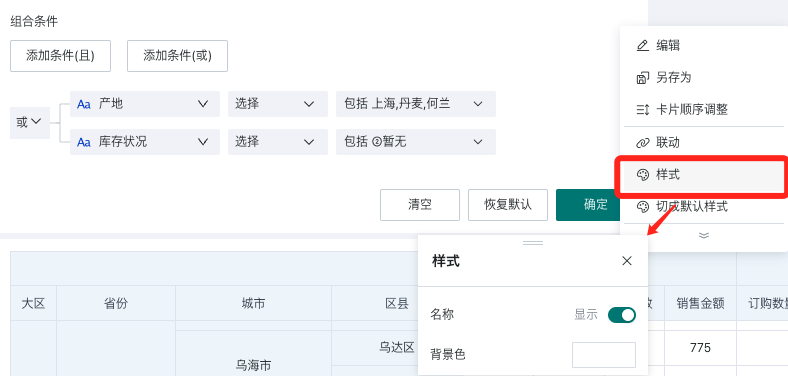
Combined condition filters support switching between two styles: default style (default) and standard style, which can be switched in the filter card's more functions.
Note:
1. When the filter is in the filter bar, only default style is supported;
2. When the filter is in the layout, both default style and standard style are supported
- Default style: Dropdown display of filter content, saving space;
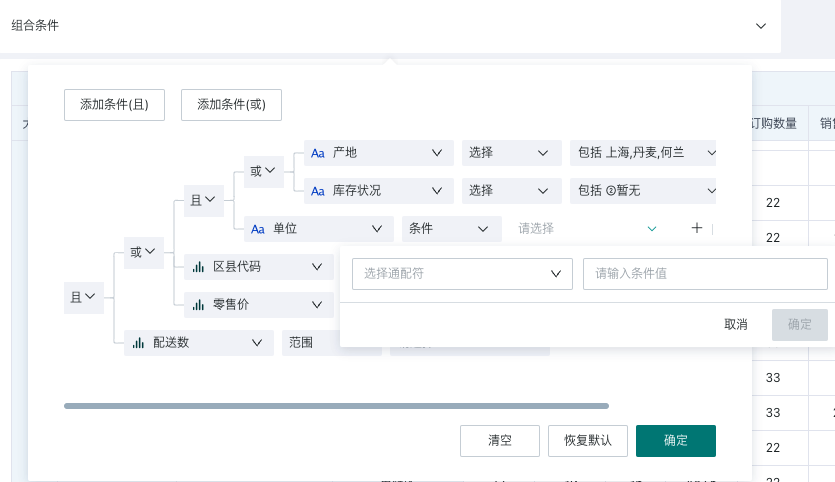
- Standard style: Flat display of filter content.
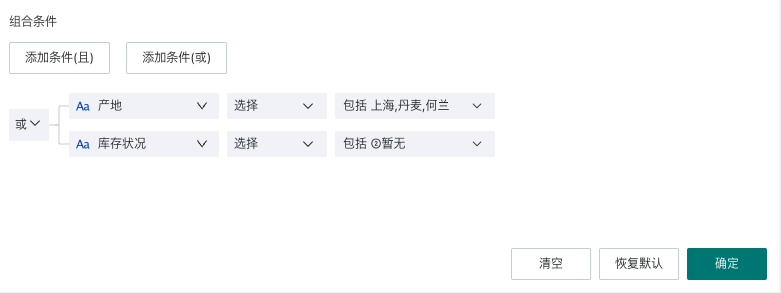
2.5. Consumer Usage
Usage
-
When users use it, they can reset filter conditions, including: modifying field values, modifying fields, modifying AND/OR relationships, adding/deleting/modifying conditions
-
After modifying conditions, they can "Restore Default" conditions with one click
-
Whether there are default conditions or whether new conditions have been modified, as long as filter conditions exist, they can choose "Clear" when not needed
Note: All the above operations need to click [Confirm] to take effect.
View Filter Effect
After filtering, the filter will take effect on each linked card, and the card will present the data after filtering;
When users browse the card, they can hover the mouse over the "small funnel" icon in the card toolbar to view the current filter conditions. When hovering over the highlighted combined condition filter name, the complete combined condition filter's filter content will appear.
